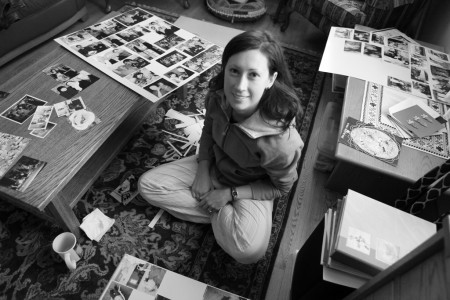If you are primarily a content producer, running a website or a business inevitably seems to involve doing some work outside your area of core competency. You need to deal with clients, negotiate rates, file taxes, manage webservers, etc.
There is one line of thinking that says all such activities are a necessarily evil, at best, and that we should all stick to doing what we are most skilled at. The Ricardo theory of trade may be the purest expression of this idea. It says that if everybody focuses exclusively on what they are best at and sells the products of that skill to everyone else, they will be able to pay others to provide all the necessities of life.
We all do a fair bit of outsourcing. Consider the case of Thoreau, who built his own house and found some of his own food. Compared to him, we are pretty much all more specialized.
Of course, Thoreau’s philosophy is pretty much the opposite of Ricardo’s. Thoreau thought that you should do for yourself even what other people could do better: haul the lumber for your shack on your own back, rather than hiring a man with a cart.
The main question here seems to be how far you should specialize. There are definitely gains to be made in specialization. As Malcolm Gladwell argues, if you spend 10,000 hours practicing the activity you do best, you might become world class at it. At the same time, specialization produces vulnerability to change. A hummingbird with a beak that has evolved to fit only into a single kind of flower is in a lot of trouble if that flower becomes rare or goes extinct. This idea is well expressed in the anime film Ghost in the Shell: “Overspecialize and you breed in weakness; it’s slow death”.
Personally, I think it makes sense to cultivate at least a couple of sets of skills – something abstract and something practical, perhaps, or at least some sort of serious hobby outside of work. Also, even when something isn’t a core competency of yours, it can be worthwhile to know a bit about it. It would be useful for me to take a course on Cascading Style Sheets (CSS), for instance. Web design certainly isn’t a major activity of mine, but it would be nice to be able to customize sites a bit without having to spend heaps of time trawling through forums and plagiarizing the code of others.


I wouldn’t go as far as Thoreau. ( In other words I wouldn’t be that Thoreau. ;) )
I can do for myself what others can do better until I keep at it to surpass. I didn’t like that all my food came from mysterious sources. Getting closer to that source gives gratification. Didn’t like that photos of me were all by not-me and by males. Fixed that.
By specializing we learn what to outsource. And have a plan B when the plumber can’t come.
I can’t be as Thoreau as Pearl.
One element in the equation is the degree of satisfaction that one receives from an activity. My friend Gary and others I know obtain immense satisfaction from woodworking, which is quite different from there day jobs. They and their families also enjoy seeing the woodworking in their homes. Gary has crafted most of the furniture in the family cabin which his grandfather built 70 years ago from logs on that property. What connection and satisfaction.
I just read the Wikipedia entry on Thoreau. Quite fascinating. When considering how much Riccardo to follow and how much Thoreau, perhaps, we can consider a little bit of both. (As Forrest Gump said in relation to fate and will.)
“Almost all Nobel laureates in the sciences are actively engaged in arts as adults. They are twenty-five times as likely as average scientist to sing, dance, or act; seventeen times as likely to be an artist; twelve times more likely to write poetry and literature; eight times more likely to do woodworking or some other craft; four times as likely to be a musician; and twice as likely to be a photographer.” — Bob Root-Bernstein, Ph. D., physiologist and MacArthur Fellow.